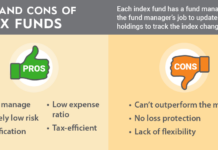Regardless of how your retirement plan pans out due to Covid-19, the truth is that you still have to plan for retirement. Why, because the dynamics of retirement planning have changed over the decade. While the current pandemic might play a role, other factors have changed retirement planning over the years.
We have a longer life span with people living up to the age of 90 years and above. Second, fixed-income investments have a lower yield now, lessening the returns over time. With all these factors in mind, how do you ensure you get the retirement you deserve? Below are top investment strategies that will help with your retirement planning:
How Long do you Have to Retirement Age?
The first step in planning for your retirement is to consider when you want to retire. Are you planning on retiring early, or will you wait until the average retirement age? This will help you map out how long you have to save for retirement. The longer you have to save, the more you can contribute and benefit from long-term investment.
How Much Should You Save?
Disheartening as it is to think about yourself as an older adult, it is the best place to start. How would you like your life to look like? Do you want to spend your retirement globe-trotting, or would you want to retire in another country? What about your lifestyles? Are you planning on maintaining the same lifestyle, or would you consider lowering your living costs? Here’s what to consider:
- House costs, like rent, mortgage payments, property maintenance, water, power, and heating.
- Daily expenses, like food, transportation, and clothing.
- Insurance costs, such as life insurance, auto insurance.
- Travel expenses if you plan on traveling a lot, including hotel and flight costs, travel insurance.
- Entertainment costs, e.g., eating out, play and movie and dates.
When making these cost calculations, remember to factor in the rate of inflation. Statistics show that the global rate of inflation has been increasing over the years. While one cannot tell what the future costs will be, it is safe to work under the assumption that living costs will increase over the years. With that in mind, financial advisors advise saving about 80 % – 90% of one’s annual pre-retirement income.
Start Saving for Retirement
With the time horizon and amount needed for retirement in place, you can start saving for retirement. Start by making a budget to help track your monthly expenses. It will give you a sense of how much you spend every month, how much your expenses might be during retirement, and what costs you can cut to save more money.
Ensure that you automate your savings from our checking account directly to your retirement account. Most of all, ensure you have an emergency fund to avoid dipping into your retirement savings during emergencies.
Finally, have a plan to get out of debt by the time you go on retirement. The last thing you want is to have your retirement catering to our debts instead of paying for retirement expenses.
Choose a Retirement Savings Account
If your employer offers you retirement benefits, you can increase your retirement contributions after matching your employer’s contributions. If your employer does not provide pension benefits or you are self-employed, consider getting an individual pension plan.
National governments have offer pension bodies for citizens to save for their retirement, but financial firms and insurance companies have retirement plans. Before settling on any, ensure you do your due diligence.
Draw an Exit Strategy
We may make our plans, but they do not always go as planned. You need to have an exit strategy in the unfortunate event you die before your retirement age. Talk to an estate planning lawyer and have your estate in order. It will ensure your savings and retirement investments go to your beneficiaries in case you die.
In conclusion, retirement planning is a never-ending cycle, and you need to be on top of things. Start investing from an early age, even if you do not have a pension benefit from your employer. Keep tabs on your retirement goals, like time horizon, total retirement amount, no matter how the market behaves.












